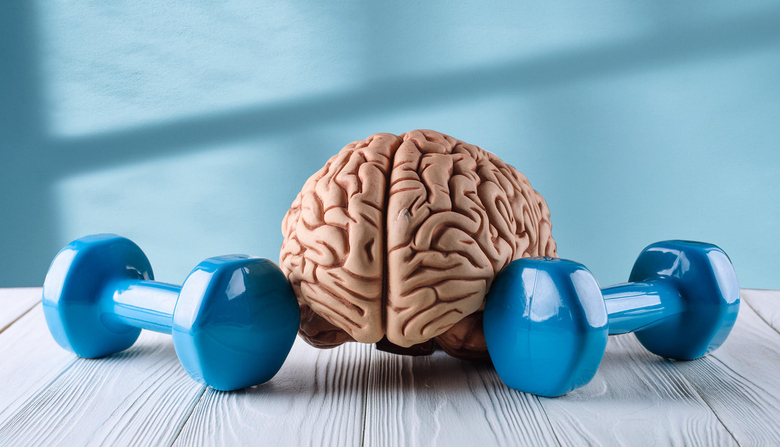Be Proactive and Aware Of Your Thoughts

By Joy Stephenson-Laws, JD, Founder
We’ve all heard the saying – The thought of it just makes me sick – when someone is referring to something very unappealing or just downright atrocious. The funny thing about this saying is that maybe there is more truth to it than we really realize. For instance, do our thoughts have the potential to make us physically ill?
We have up to 60,000 to 70,000 thoughts per day! If we think very negatively, I would imagine this constant channel of “all that is wrong,” “all that could go bad,” or “all that we will never be” may eventually cause physical symptoms.
This mind-body connection is not a new phenomenon, but I don't think people take it as seriously as they should.“By now, the mind-body connection is a familiar idea. Most people are aware, for example, that stress can produce physical symptoms like an upset stomach, or that depression often physically hurts,” according to a 2015 report from ABC News.
“But a growing body of research suggests that negative emotions and thoughts may also have links to other serious health problems, like heart disease.”
That is definitely food for thought (pun intended) considering that the leading cause of death for both American men and women is heart disease.
Take a look at these other findings the ABC News report discusses:
- A study published in 2014 found evidence suggesting that being a cynical person and someone who carries a “general distrust of people” is connected to a greater risk of developing dementia.
- A 2009 study that looked at data from more than 100,000 women suggests that cynical women are more likely to have heart disease.

“Another bad attitude that has been linked to poor health outcomes: hostility. According to a 2014 study published in the journal Stroke, people who scored higher on measures of unfriendliness, as well as those with chronic stress and depressive symptoms, had a higher risk of stroke than the friendlier, kinder participants,” (ABC News).
The good news is that we can be proactive and change our thoughts.
"Thoughts become perception, perception becomes reality. Alter your thoughts, alter your reality."
William James, Father of American Psychology
We can have positive thoughts just as easily as we can have negative. If you are someone who is constantly thinking negatively, being more optimistic may be challenging at first. Your brain might just be on autopilot of seeing “all that is bad.” You just have to work on your mental fitness and mind training. I would suggest getting more in tune to your thinking.

Think of those negative thoughts like little bullies that you have to put in their place. Here are some perhaps common negative thoughts and positive thoughts to counteract these negative thoughts:
- I can’t seem to lose weight. I will always be fat and never reach my goals.
-
- It may take time, but every day I am working towards my health and fitness goals. It’s about consistency, not perfection.
- I’m broke. I will owe this debt forever.
-
- I can make smart financial decisions. I have the potential to grow my income, budget my money and get out of debt. I know I live in an abundant universe that wants me to receive.
- My life is so boring. Every day is the same. I don’t feel alive.
-
- I control my life. Every day I have the opportunity to try new things and learn something new. I am so grateful I get to live this life. It truly is an adventure.
- My spouse or partner just won’t do what I want them to do. It’s so frustrating that they won’t take better care of themselves or that I have to ask them to take the trash out.
-
- I am not in control of other people. I can only control my actions, set the example and be the change I want to see in my partner. I can ask for what I want. I can ask for help. I can ask for a break.
- Life is not fair.
-
- It is a privilege to live this life, even if it is filled with upsets and challenges. I can do hard things and persevere.
You see how you can take two completely different directions no matter what the circumstances are? Think of it as being in two different camps. Which camp do you want to be a part of? Camp positivity, happiness and empowerment or camp negativity, boredom, fear, helplessness and dissatisfaction? I know what camp I’m choosing!

Researchers from John Hopkins found in their studies that people with a family history of heart disease who also had a “positive outlook” were one-third less likely to have a heart attack or other cardiovascular event within five to 25 years compared to those who were more negative thinkers.
“The mechanism for the connection between health and positivity remains murky, but researchers suspect that people who are more positive may be better protected against the inflammatory damage of stress,” according to John Hopkins.
“Another possibility is that hope and positivity help people make better health and life decisions and focus more on long-term goals. Studies also find that negative emotions can weaken immune response.”
If you are someone who could really use some help with mind training, I highly recommend also checking out the pH blog Practicing Mindfulness May Be What’s Missing From Your Proactive Health Arsenal.
Sometimes achieving physical fitness requires getting emotionally fit first, however, never underestimate the power of following a healthy, nutrient-rich diet consisting of whole, unprocessed foods.
Also consider taking a comprehensive nutrient test. Nutrient imbalance or deficiency may promote negative thinking by contributing to stress and irritability. Optimal brain health is important. If you discover you have any nutritional issues, a competent healthcare professional can work with you to adjust your diet and possibly recommend quality supplements you can include in your regimen.
Enjoy your healthy life!
Disclaimer: This article is not intended to provide medical advice. Please consult with your doctor or another competent healthcare practitioner to get specific medical advice for your situation.
The pH professional health care team includes recognized experts from a variety of health care and related disciplines, including physicians, attorneys, nutritionists, nurses, and certified fitness instructors. This team also includes the members of the pH Medical Advisory Board, which constantly monitors all pH programs, products, and services. To learn more about the pH Medical Advisory Board, click here.







